Cholesterol gets a bad rap, and honestly, it’s earned some of it. But the second your numbers creep up, it can feel like joy itself is on the chopping block—no more cheese, no more wine, no more flavor, fun, or freedom. But here’s the thing: managing your cholesterol doesn’t have to mean living like a monk. You don’t need to give up everything you love or choke down bland salads for the rest of your life.
There is a middle path—one backed by science and rooted in real, doable lifestyle shifts. These 13 natural strategies will help you lower your cholesterol without ditching the pleasure of food, movement, and everyday life. Because yes, you can care about your heart and still enjoy it beating with excitement over a meal you actually want to eat.
1. Engage In Stress Management

When your body is constantly under stress, it releases hormones that can increase cholesterol levels, especially triglycerides. Learning to manage stress—whether it’s through yoga, meditation, or just regular “me time”—can have an incredible impact on your health, particularly your cholesterol levels.
Stress management isn’t about eliminating pressure from your life but learning how to respond to stress in a way that doesn’t sabotage your health. Whether it’s a nightly bubble bath or journaling in the morning, find what keeps you grounded and stick with it.
2. Eat Oats For Breakfast
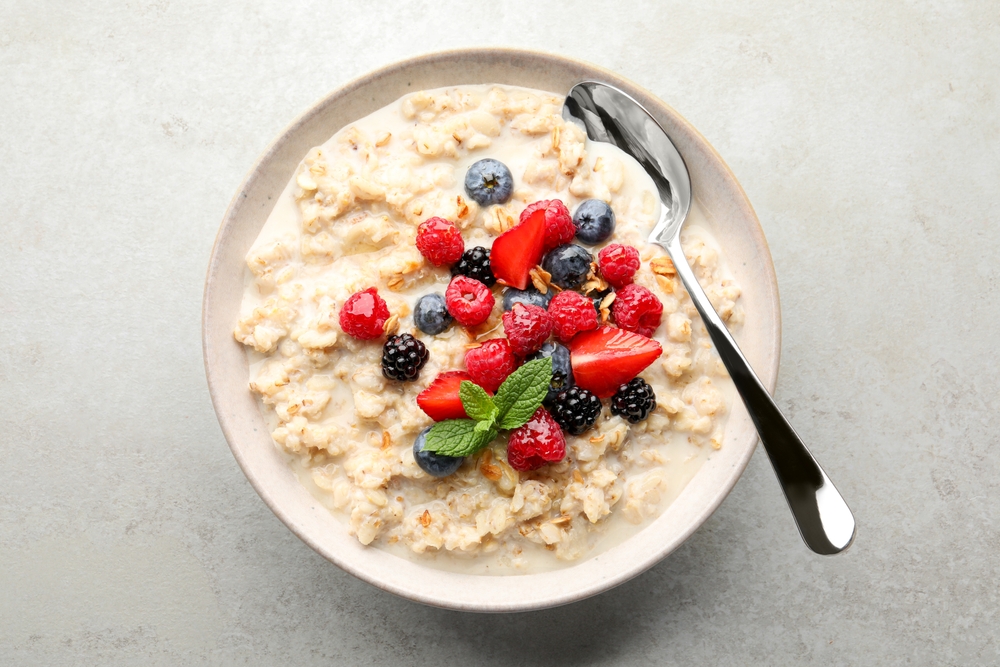
Oats are packed with soluble fiber, which binds to cholesterol and helps remove it from the body. It’s the kind of breakfast that quietly does its job while you move through your routine, all while lowering LDL (the bad cholesterol) levels in a way that’s both effective and gentle. ScienceDaily says eating oats can reduce LDL cholesterol by 4.2%, non-HDL cholesterol by 4.8%, and apoB by 2.3%.
Pair your oats with some chia seeds, flaxseeds, or a handful of berries to make this heart-healthy meal even more beneficial. These little additions provide omega-3 fatty acids and antioxidants that work together to boost your heart health.
3. Choose Healthy Fats

Healthy fats—those found in olive oil, avocados, and nuts—actually help lower your cholesterol. Johns Hopkins Medicine confirms that unsaturated fats found in foods like nuts, seeds, and olive oil can reduce LDL cholesterol and support heart health. Monounsaturated and polyunsaturated fats increase HDL (the good cholesterol) while simultaneously lowering LDL. It’s like the best-kept secret in the wellness world: adding a drizzle of olive oil on your salad or munching on almonds can directly benefit your cardiovascular health.
Moderation is key. While these fats are incredibly beneficial, they’re still calorie-dense. So sprinkle a little, drizzle a touch, and snack responsibly to keep your heart in top shape without overdoing it.
4. Take A Stroll

Exercise isn’t just a “recommendation” after 50—it’s a game changer. Moderate activity like walking, swimming, or cycling increases HDL cholesterol levels while lowering LDL and triglycerides. It doesn’t need to be intense or even particularly long. Just a brisk 30-minute walk every day can significantly improve your cholesterol numbers. Think of it as the anti-aging ritual you never knew you needed.
And here’s the kicker: when you walk or engage in regular physical activity, you’re not just improving your heart health—you’re also enhancing circulation, boosting energy, and helping to stabilize blood sugar levels. Exercise improves cholesterol by increasing the size and number of lipoprotein particles that carry both good and bad cholesterol, making it an essential part of cardiovascular health management.
5. Sip Green Tea
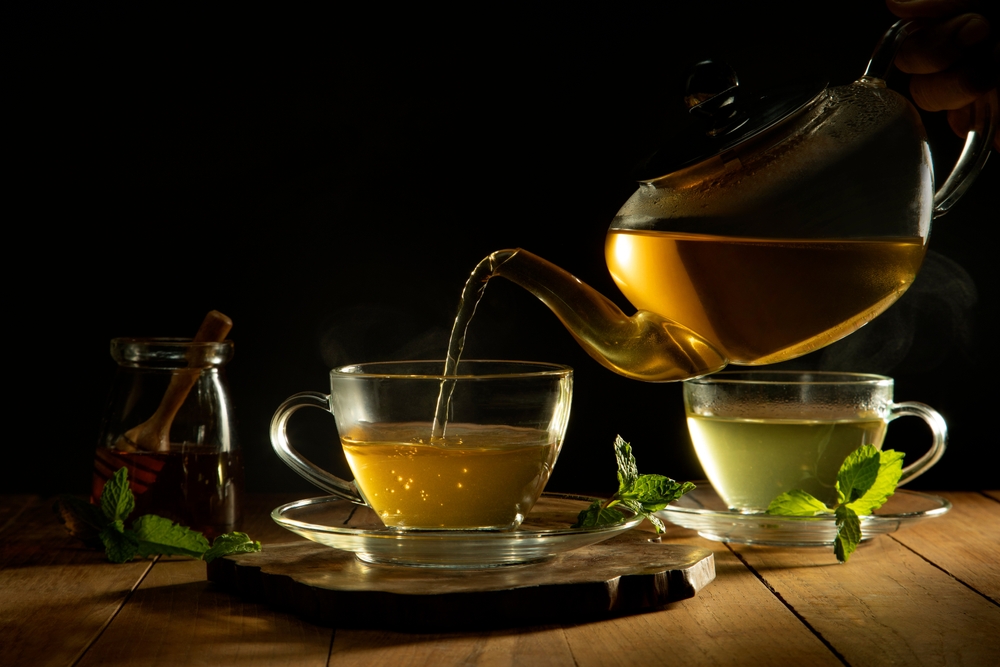
Green tea is not just trendy; it’s scientifically proven to lower cholesterol. Packed with antioxidants, it contains catechins that help reduce LDL cholesterol levels and prevent artery clogging. It’s the ultimate beverage for those who want a stylish, health-boosting alternative to coffee. Swap your morning cup for a mug of this antioxidant powerhouse, and watch your cholesterol start to drop naturally.
Plus, there’s something infinitely chic about sipping a warm cup of green tea as part of your daily routine. It’s calm, it’s calming, and it’s undoubtedly good for you. According to PubMed, green tea consumption significantly lowers total cholesterol and LDL cholesterol levels, making it an effective addition to a heart-healthy lifestyle.
6. Up Your Fiber Intake
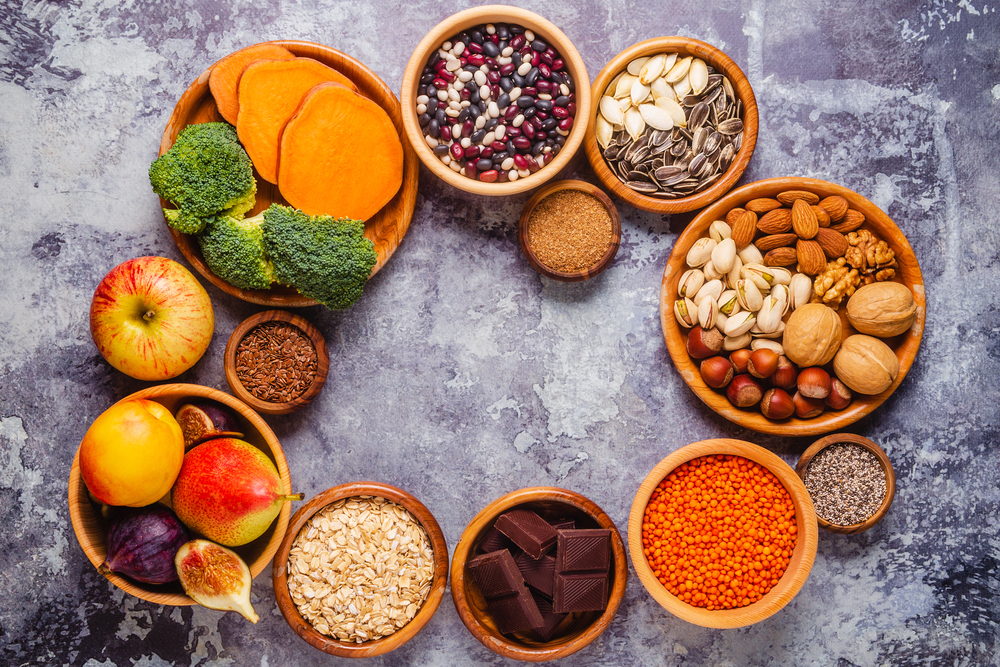
Soluble fiber, found in foods like beans, lentils, and certain fruits, helps to absorb and eliminate cholesterol from your system. It’s like the little scrub brush for your insides. The more fiber you consume, the better your body can handle cholesterol, and the smoother your arteries will be.
The beauty of fiber is that it’s an easy, delicious addition to any meal. Toss some lentils into a salad, add beans to your soups, or grab an apple for a snack. With every bite, you’re lowering your cholesterol levels while nourishing your body with vital nutrients. This isn’t just about lowering numbers; it’s about feeling great in your skin.
7. Add Omega-3s To Your Diet

Omega-3 fatty acids are the gold standard when it comes to heart health. Found in foods like fatty fish (salmon, mackerel), flaxseeds, and walnuts, these healthy fats lower cholesterol by reducing triglycerides and increasing HDL levels. Think of omega-3s as the VIPs of heart health—beneficial in so many ways that they can’t be ignored. A few servings a week could make all the difference in maintaining a healthy balance of cholesterol in your system.
Incorporating more omega-3s into your diet doesn’t have to mean overhauling your entire menu. A simple piece of grilled salmon or a sprinkle of walnuts in your morning oatmeal can go a long way. Make it a habit, and your heart will thank you—now and in the years to come.
8. Get Onboard With Garlic
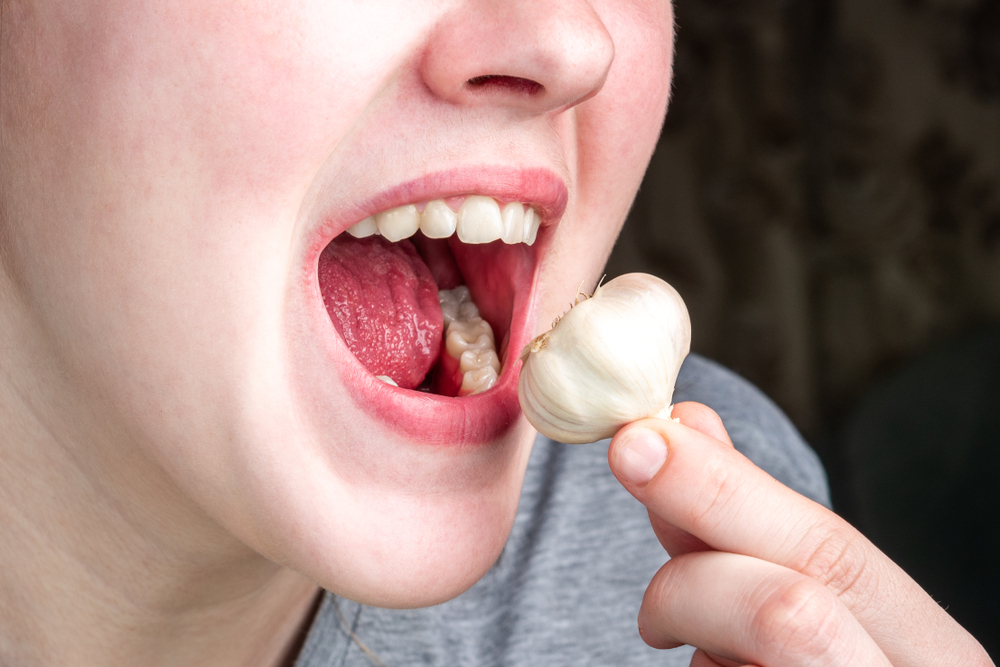
Garlic is a cholesterol-lowering powerhouse. Studies have shown that garlic can lower total cholesterol levels, particularly LDL, by as much as 10%. It’s one of those little-known gems in the wellness world that doesn’t just make your dishes more interesting, but contributes to your heart health.
Whether you’re roasting it, adding it raw to your salads, or blending it into a pesto, garlic offers far more than just taste. It’s your unsung hero in the fight against high cholesterol, and it doesn’t even need to try that hard to do its job. And let’s be honest, is there anything more delightful than the aroma of garlic wafting through your kitchen?
9. Drink Red Wine In Moderation

Moderate consumption of red wine has been shown to raise HDL cholesterol levels and protect against heart disease. The secret lies in resveratrol, a compound found in red wine that also has anti-inflammatory properties. But—and this is important—moderation is key. Overindulgence will only create problems, not solve them.
Enjoying a glass of red wine with dinner, not to drown your worries but as a toast to your health, could be a perfect evening ritual. Just make sure it’s the kind of ritual that’s as classy as it is beneficial. A little goes a long way, and the rewards can be worth it.
10. Incorporate Plant Sterols Into Your Diet
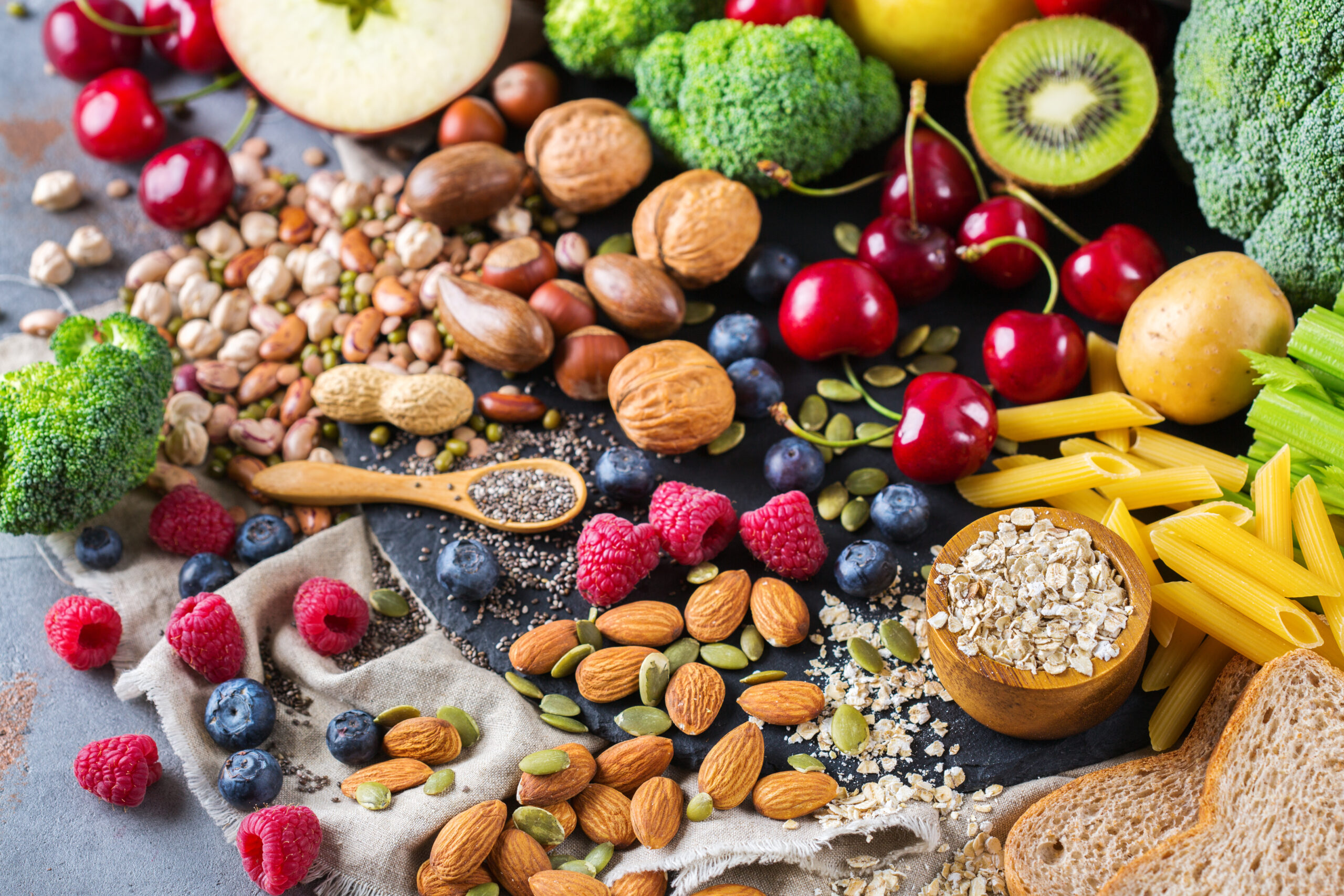
Plant sterols are natural substances found in plants that have been shown to block cholesterol absorption in the intestines. You can find them in fortified foods or take them as supplements, but adding a few servings of sterol-rich foods like nuts, seeds, and vegetables can give your cholesterol levels a serious boost in the right direction. They work in harmony with your body, making them one of the most understated tools in the cholesterol-lowering arsenal.
When you start incorporating more plant sterols into your meals, don’t expect immediate changes. Like all good things, they require a little patience. But with consistent use, you’ll likely notice significant improvements over time, keeping your heart happy and cholesterol under control.
11. Get More Vitamin D

Vitamin D might not be the first thing you think of when it comes to cholesterol, but research suggests that it plays an essential role in heart health. Low levels of vitamin D have been linked to higher cholesterol levels, especially the harmful kind. So, make sure you’re soaking up enough sunlight, eating foods like fortified milk, and taking supplements if needed. Your body needs vitamin D for so many reasons, and heart health is one of the most important.
It’s not about getting too much, but just the right amount to support your cholesterol management. Taking a walk in the sun for 15 minutes a day or incorporating vitamin D-rich foods into your meals can be a simple yet stylish way to nourish your body and boost your cholesterol-lowering efforts.
12. Embrace The Mediterranean Diet
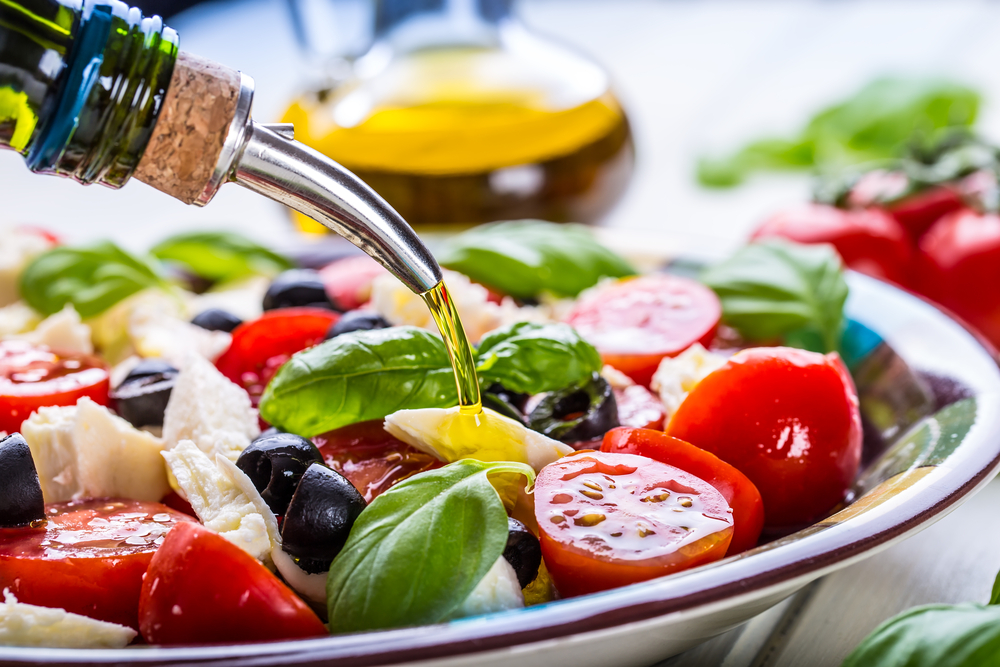
The Mediterranean diet isn’t just about pasta and olive oil—it’s a lifestyle, and it’s a heart-healthy one at that. Packed with whole grains, fruits, vegetables, healthy fats, and lean proteins, this diet has been proven to lower cholesterol levels and improve heart health. The key is balance, and this approach to eating offers the perfect mix of nutrients your body needs to thrive.
Adopting the Mediterranean way of eating doesn’t mean you have to live in Greece, but it might just make you feel like you’re on vacation every day. Add more vegetables to your plate, drizzle some olive oil, and enjoy the fresh flavors of a diet that’s as good for your taste buds as it is for your cholesterol.
13. Say Goodbye To Refined Carbs

Refined carbohydrates—think white bread, pastries, and sugary snacks—can raise cholesterol levels in your body. These carbs cause spikes in blood sugar and contribute to inflammation, which directly impacts your cholesterol. Cutting back on refined carbs and replacing them with whole grains or even healthier alternatives like quinoa or sweet potatoes will reduce your cholesterol over time.
This isn’t about deprivation; it’s about upgrading your food choices. Instead of reaching for that slice of white bread, choose a piece of whole-grain toast, or go for a handful of nuts. You won’t miss the refined carbs, but your heart will thank you.
Natasha is a seasoned lifestyle journalist and editor based in New York City. Originally from Sydney, during a stellar two-decade career, she has reported on the latest lifestyle news and trends for major media brands including Elle and Grazia.


